Perinatal Provider Toolkit
Kara Kucinski |
- Feb 25, 2025
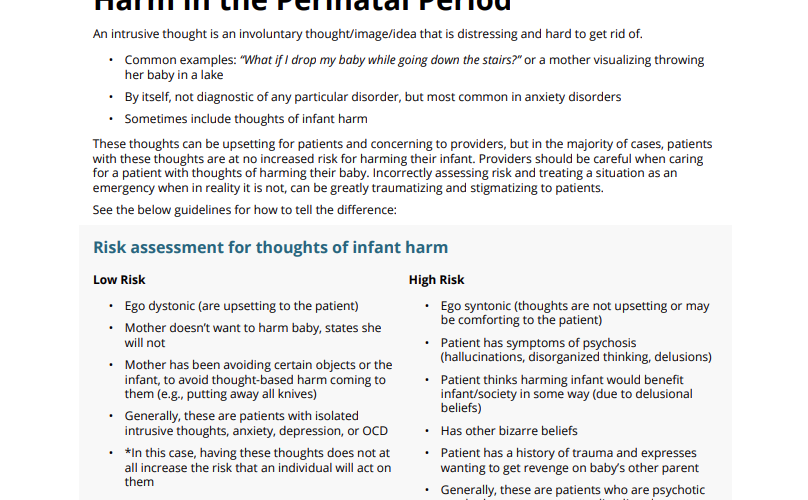
Intrusive Thoughts and Thoughts of Infant Harm in the Perinatal Period
An intrusive thought is an involuntary thought/image/idea that is distressing and hard to get rid of.
- Common examples: “What if I drop my baby while going down the stairs?” or a mother visualizing throwing her baby in a lake
- By itself, not diagnostic of any particular disorder, but most common in anxiety disorders
- Sometimes include thoughts of infant harm
These thoughts can be upsetting for patients and concerning to providers, but in the majority of cases, patients with these thoughts are at no increased risk for harming their infant. Providers should be careful when caring for a patient with thoughts of harming their baby. Incorrectly assessing risk and treating a situation as an emergency when in reality it is not, can be greatly traumatizing and stigmatizing to patients.
See the below guidelines for how to tell the difference:
Risk assessment for thoughts of infant harm
Low Risk
- Ego dystonic (are upsetting to the patient)
- Mother doesn’t want to harm baby, states she will not
- Mother has been avoiding certain objects or the infant, to avoid thought-based harm coming to them (e.g., putting away all knives)
- Generally, these are patients with isolated intrusive thoughts, anxiety, depression, or OCD
- *In this case, having these thoughts does not at all increase the risk that an individual will act on them
High Risk
- Ego syntonic (thoughts are not upsetting or may be comforting to the patient)
- Patient has symptoms of psychosis (hallucinations, disorganized thinking, delusions)
- Patient thinks harming infant would benefit infant/society in some way (due to delusional beliefs)
- Has other bizarre beliefs
- Patient has a history of trauma and expresses wanting to get revenge on baby’s other parent
- Generally, these are patients who are psychotic or who have severe personality disorders
- PSYCHIATRIC EMERGENCY—SEND TO ER
Consider using these phrases when talking to a mom about intrusive thoughts
- “When a parent is feeling really overwhelmed, it can be really common for her to have thoughts about hurting her baby, even though she wouldn’t want to act on these thoughts. Has this ever happened to you?”
- “Do these thoughts upset you?”
- “How worried are you that you might act on these thoughts?”
- “Parents are sometimes scared to share these thoughts for fear that someone might try to take their baby away from them. However, our goal is to get moms the help they need and to avoid separating them from their babies.”
- “In the vast majority of cases, having these thoughts does not increase a parent’s risk of acting on them.”
For more information, please watch MC3’s Intrusive Thoughts and OCD in the Perinatal Period recorded educational presentation.

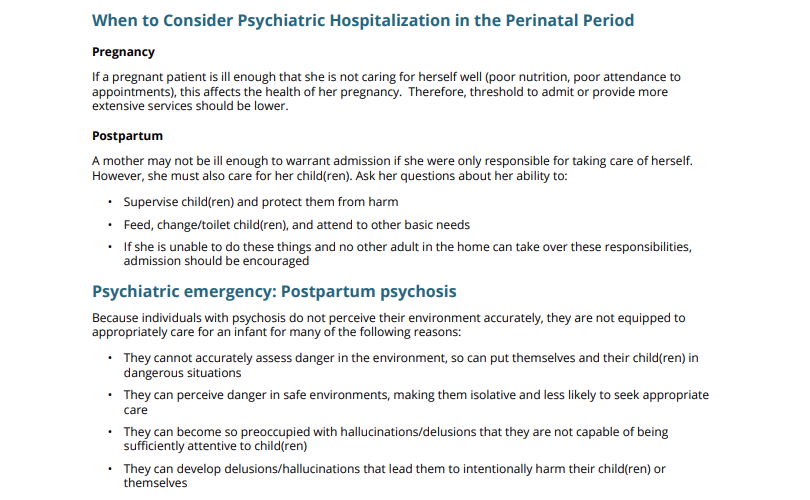
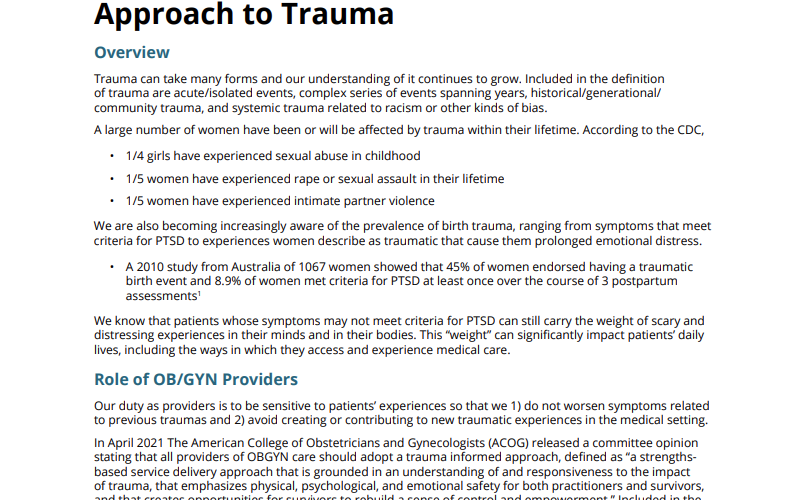
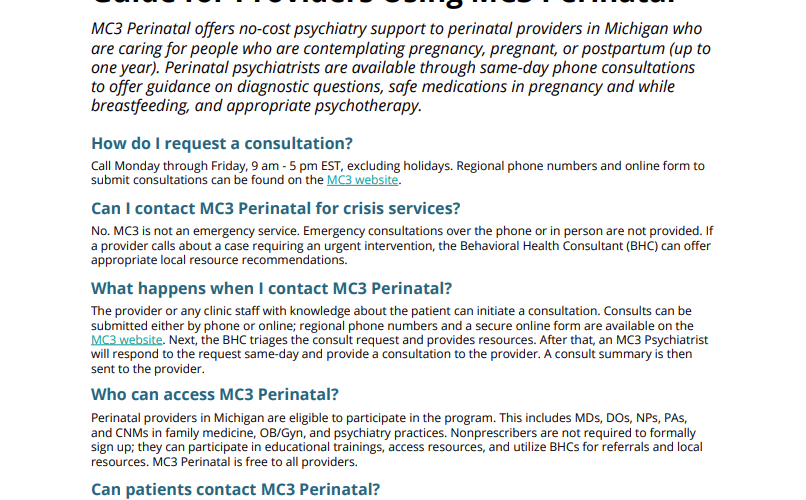
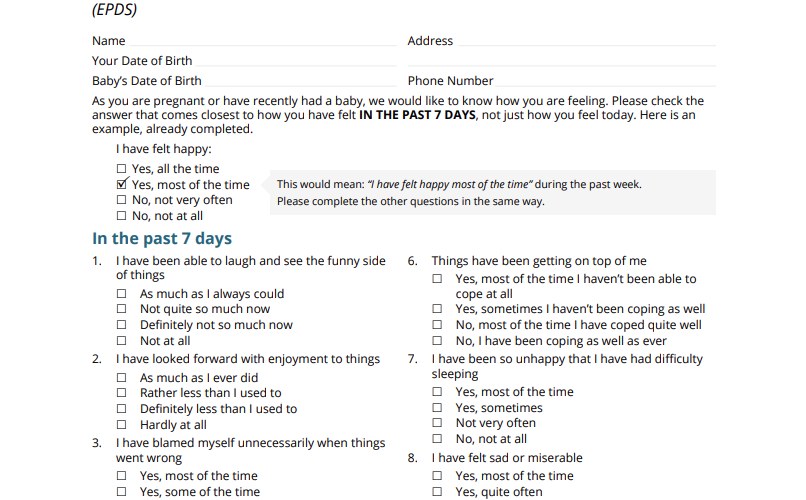
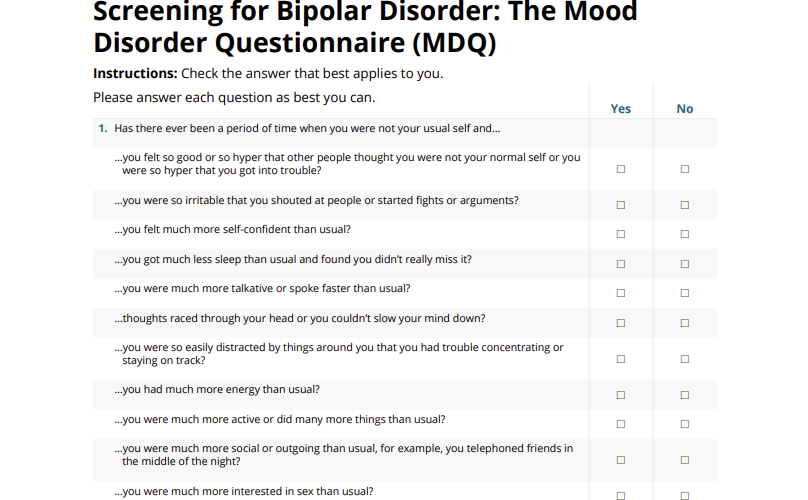
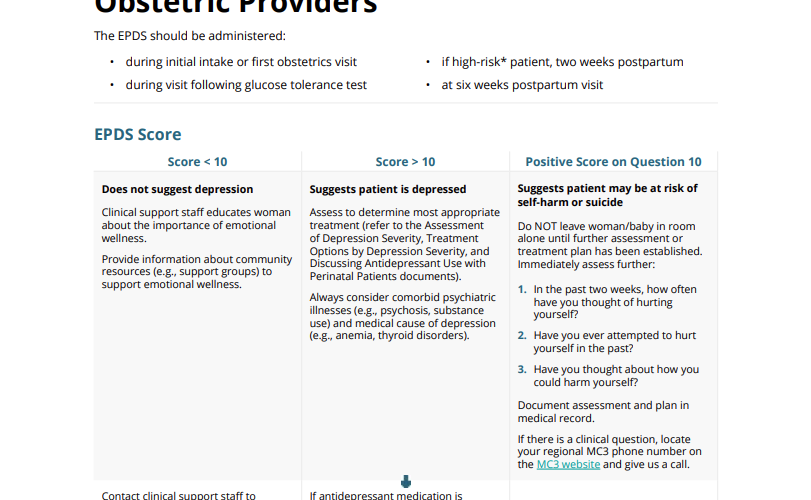
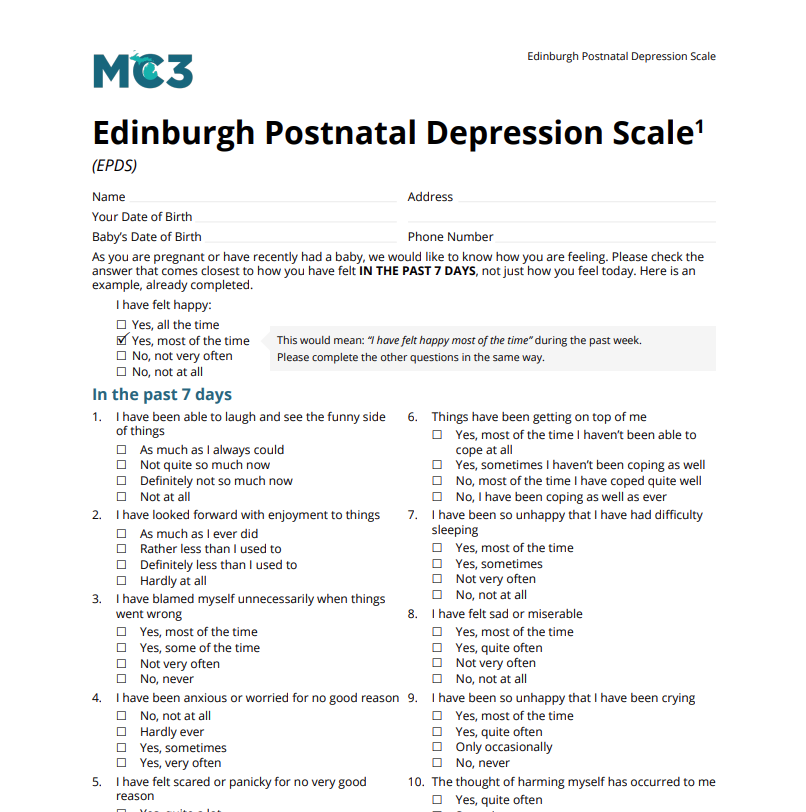
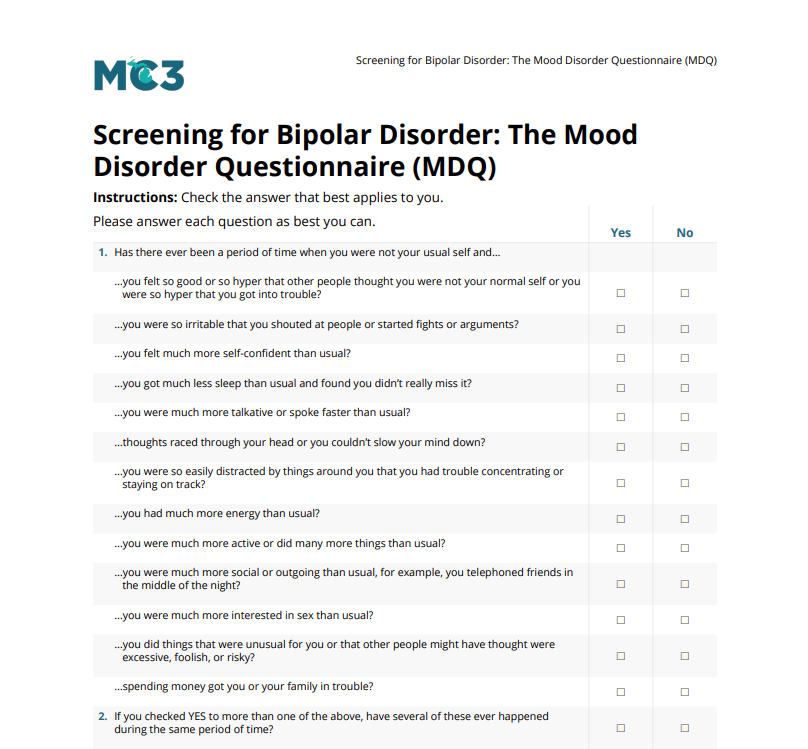
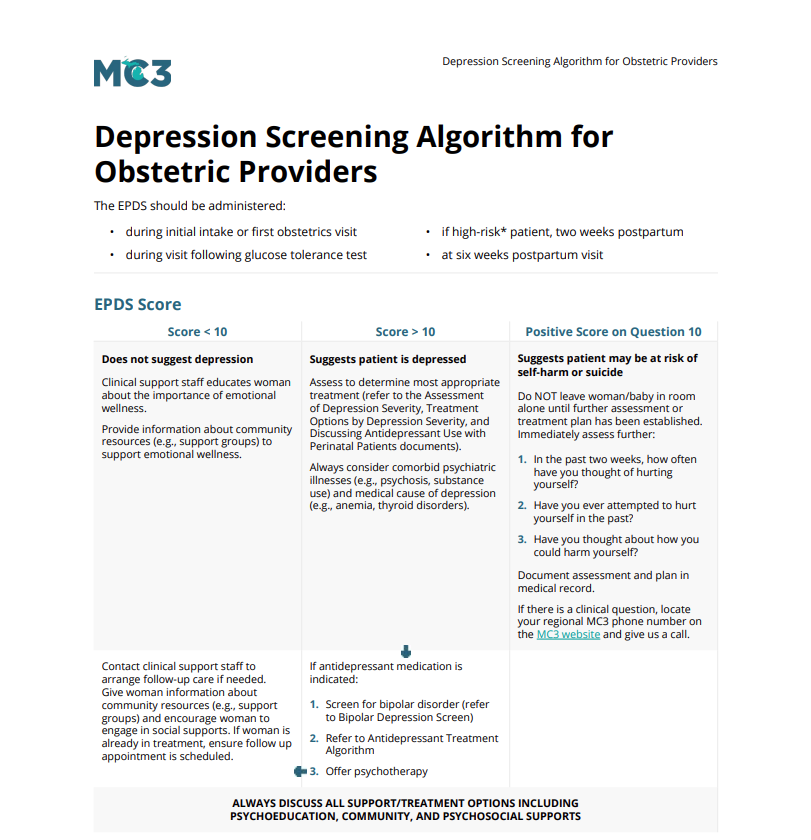
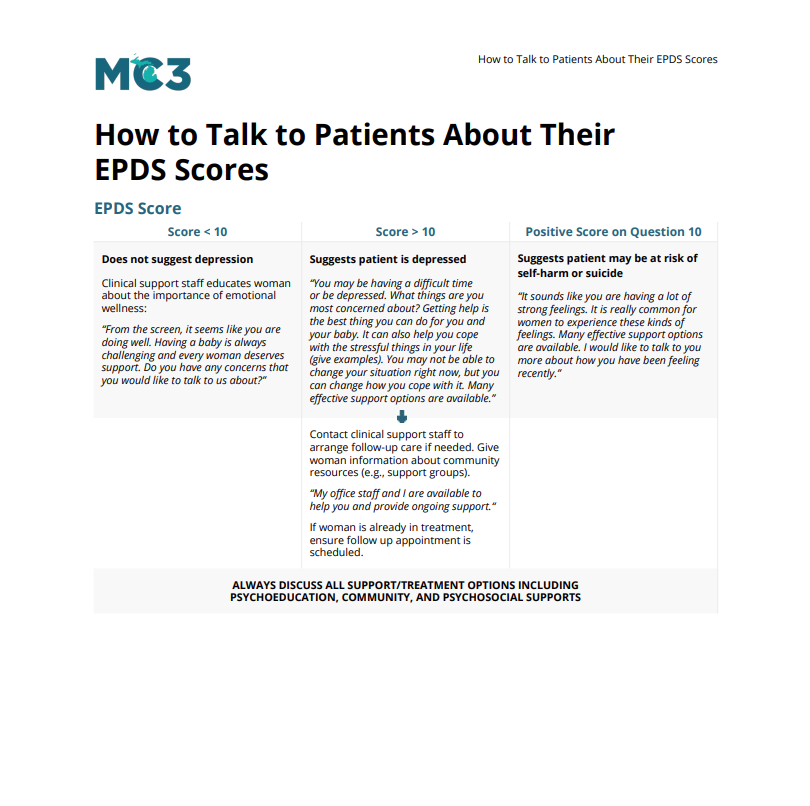
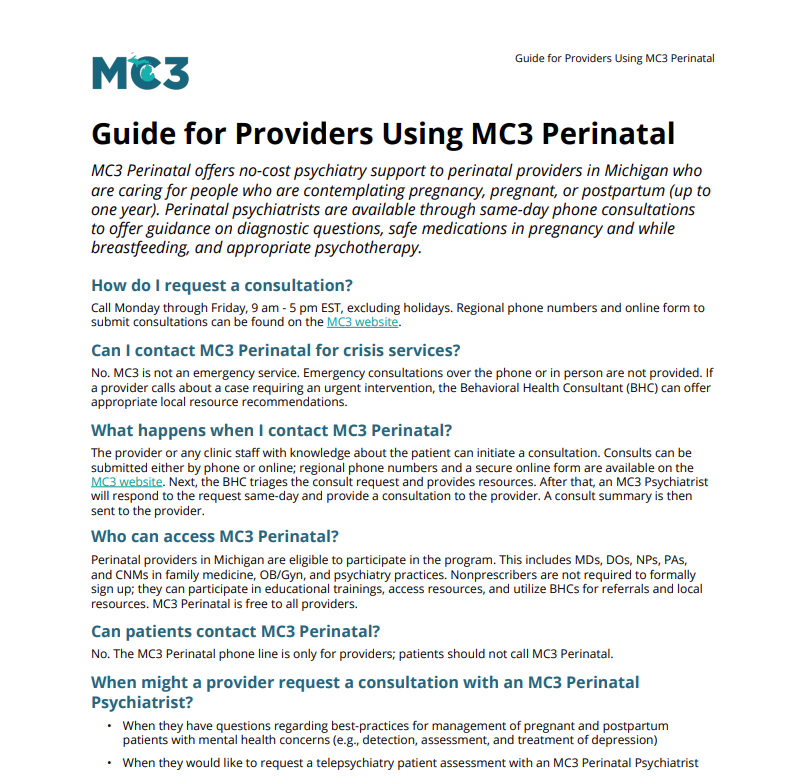
No Comments |